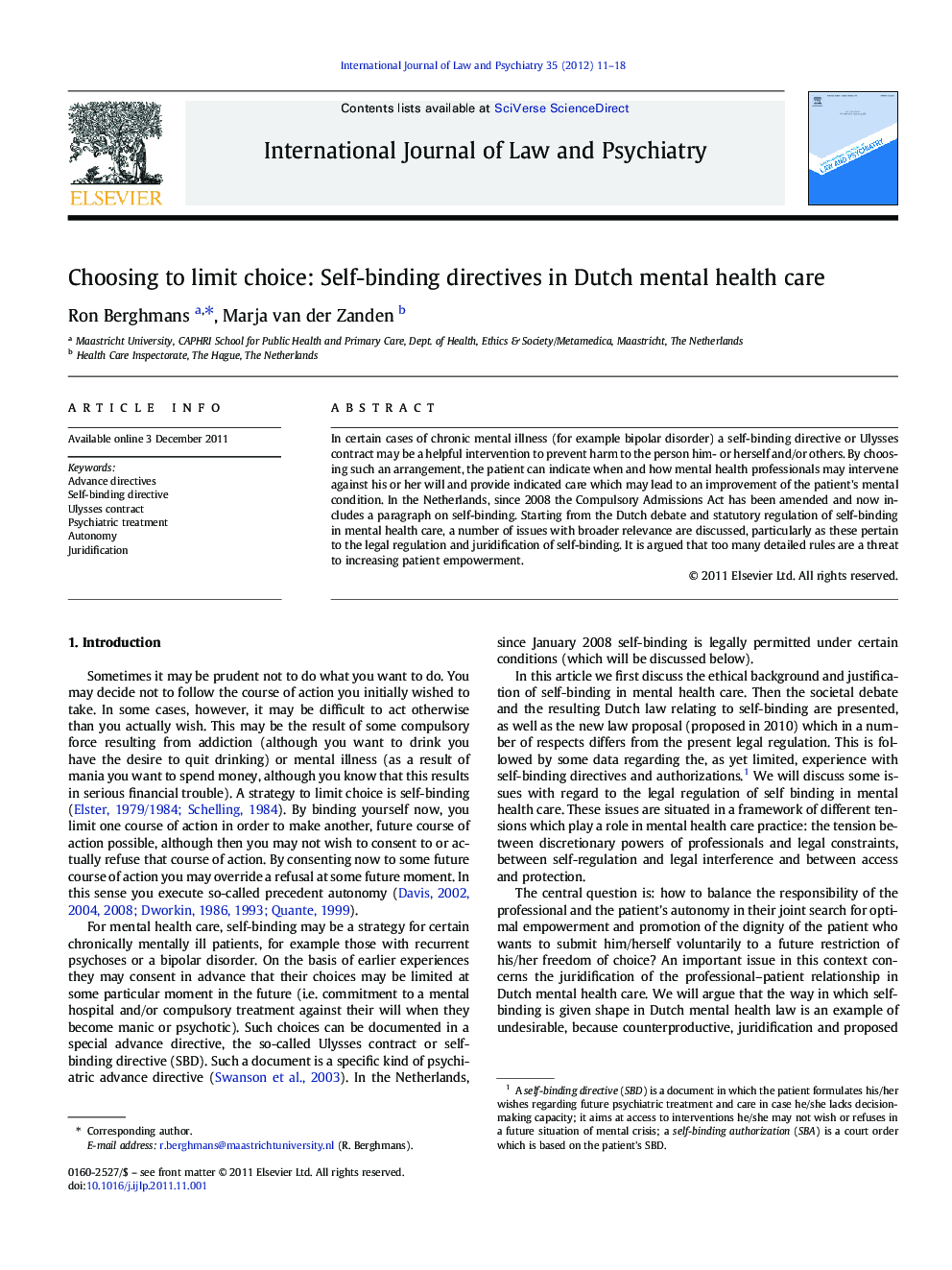| Article ID | Journal | Published Year | Pages | File Type |
|---|---|---|---|---|
| 100920 | International Journal of Law and Psychiatry | 2012 | 8 Pages |
In certain cases of chronic mental illness (for example bipolar disorder) a self-binding directive or Ulysses contract may be a helpful intervention to prevent harm to the person him- or herself and/or others. By choosing such an arrangement, the patient can indicate when and how mental health professionals may intervene against his or her will and provide indicated care which may lead to an improvement of the patient's mental condition. In the Netherlands, since 2008 the Compulsory Admissions Act has been amended and now includes a paragraph on self-binding. Starting from the Dutch debate and statutory regulation of self-binding in mental health care, a number of issues with broader relevance are discussed, particularly as these pertain to the legal regulation and juridification of self-binding. It is argued that too many detailed rules are a threat to increasing patient empowerment.
